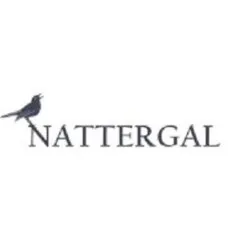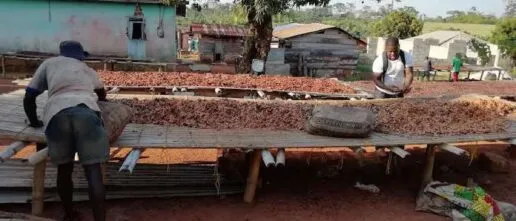Eric is a postdoctoral researcher interested in power and equity at intersection of natural resource governance and policy ecology. Eric uses predominantly qualitative approaches, including in-depth ethnographic fieldwork to understand power dynamics in socio-ecological systems, including how socio-environment policies and related investments affect diverse stakeholders, and best-bet, best-fit institutional arrangements that produce equitable outcomes. He is passionate about land access as a source of, and a basis for tackling inequality in rural Africa.
Related News Articles

Ghana – Eric Kumeh Mensah & Emmanuel Tomude
In this podcast we take a look at Ghana, where landscapes are changing as mining and industrialisation affect traditional ways of managing the land. We look at the impact on cocoa and the effectiveness of global regulations on preventing deforestation and contrast these with traditional community methods. Listen to the Podcast here The Leverhulme Centre […]
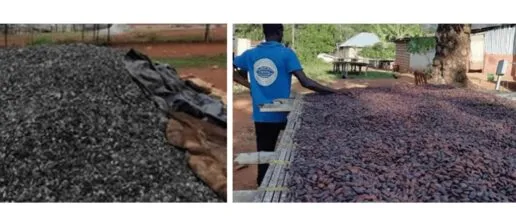
New publication: The political ecology of cocoa agroforestry and implications for equitable land use in rural Ghana.
The relevance of cocoa agroforestry is widely discussed in debates on sustainability transition in cocoa, especially in the context of ending hunger and poverty among cocoa farmers. Whereas this has led to multiple cocoa agroforestry investments by NGOs, governments, and cocoa and chocolate companies in West and Central Africa, a notable gap exists in the […]

We are off: Research on equitable Nature Recovery in Southern Ghana
By Eric Mensah Kumeh The Leverhulme Centre for Nature Recovery (LCNR), together with its Ghanaian partner, the Nature Conservation Research Centre (NCRC), have launched a new programme of research in the Guinea High Forest region of southeastern Ghana. The programme was launched with an interdisciplinary field visit to the Kwahu Landscape Restoration Project (KLRP). The […]

As climate change threatens cocoa production, why new efforts are needed to support pollination
Study finds that cocoa production—the key ingredient in chocolate—is at risk due to climate change
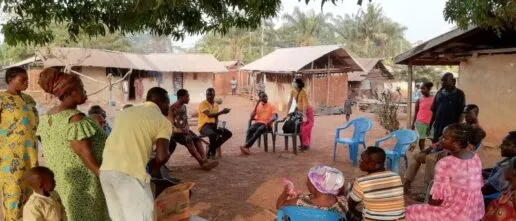
Ghana’s Landscape Approach to REDD+: Is it decentralizing or recentralizing power?
Since 1889, local communities in Ghana have been struggling to achieve equitable control over their land and forest resources
Related Research Themes

Society
Encompassing the governance and socio-cultural dimensions of nature recovery.

Policy engagement for nature recovery
We work with policy-makers to foster effective approaches to nature recovery, using the Centre's unique evidence-base and compelling stories about nature and its value to society.
Related Projects

Understanding nature recovery paths and ecosystem functioning through forests health assessments
Quantifying the health of forests ecosystems by means of earth observation can aid in understanding nature recovery paths and ecosystem functioning

Social ecological mapping for nature recovery
Developing social ecological maps for land use planning, investment and inclusive decision-making.
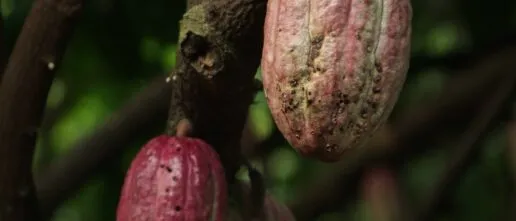
Institutional innovations for nature recovery
A power-sensitive and multi-level analysis of institutions involved in pursuing landscape scale nature recovery and their intersection with questions of equity and justice in the UK and Ghana.

Governing sustainable finance for effective and equitable nature recovery
Developing a typology of financing models for nature recovery and assessing how different modalities of finance shape dynamics of equity, collaboration and conflict in nature recovery.

Innovative methods to connect and communicate between disciplines
Establishing evidence-based methods to bridge scientific fields for nature recovery.
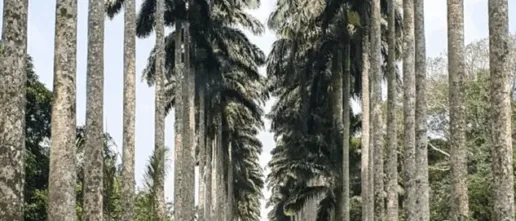
Urban green space, values and wellbeing in urban Ghana
Exploring how urban green space is (dis)valued in Accra and Kumasi, and the potential (dis)benefits to subjective wellbeing
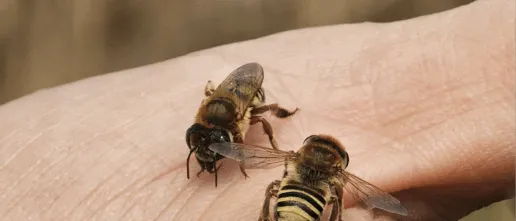
Remote sensing approaches to characterise pollinator diversity and plant-pollinator interactions in nature recovery landscapes of Eastern Ghana
Evaluating the effects of nature recovery on pollinators their interactions with plants.
Related Outputs
Equity in unilateral value chain policies: A monitoring framework for the EUDR and beyond
Unilateral value chain policies have recently emerged as a key strategy of international land use governance. They’re part of a broader trend towards trade-based environmental policies, from corporate due diligence to sustainability certification and trade moratoria, that has been critiqued for reinforcing inequities in global trade. Such critique has been heightened by the current rise […]
The political ecology of cocoa agroforestry and implications for equitable land use in rural Ghana.
The relevance of cocoa agroforestry is widely discussed in debates on sustainability transition in cocoa, especially in the context of ending hunger and poverty among cocoa farmers. Whereas this has led to multiple cocoa agroforestry investments by NGOs, governments, and cocoa and chocolate companies in West and Central Africa, a notable gap exists in the […]
How agroecology can help build dynamic cocoa agroforests in Ghana.
This article describes the transformative potential of agroecology as a beacon of hope for reestablishing balance in Ghana’s cocoa-forest mosaic landscapes. Agroecology — rooted in the principles of ecological harmony and sustainable agriculture — offers a way to revive and restore biodiversity, empower farmers and ensure a resilient and thriving future for cocoa farms.
Just nature recovery: A framework for centring multispecies and multi-dimensional justice in land management
Highlights Justice considerations can be overlooked in the planning and delivery of nature recovery projects. Multispecies justice and multi-dimensional justice offer alternative framings of justice and how it can be achieved. Integrating MSJ and MDJ approaches can inform nuanced analyses of nature recovery projects. We consider the different justice concerns in a range of examples […]
Contestations, counteractions and equitable conservation–a case study of Ghana’s Krokosua Hills Forest Reserve.
This paper delves into the intricate dynamics of forest conservation conflict in rural Ghana, where state-led conservation efforts through forest reserves have met fierce counteractions from local communities within and around the Krokosua Hills Forest Reserve. The study adopts a critical postcolonial institutional framework to examine the historical struggles that have shaped conservation policies in […]
Understanding actors’ power through conflict dynamics: Insights from small-scale mining on cocoa farms
Artisanal and small-scale gold mining at the forest-farm nexus remains a contentious issue due to the diversity of actors and competing interests surrounding it. Using the actor-centered power (ACP) approach, it has been theorized that actors leverage power resources, combining coercion, (dis-)incentives, and dominant information, to influence less powerful actors to act against their preferred […]
World Series Vol. 43 – International Forests Governance: A critical review of trends, drawbacks, and new approaches – chapter
International Union of Forest Research Organizations has published a new report under its Science-Policy Programme: “International Forests Governance: A critical review of trends, drawbacks, and new approaches” The scope of this new assessment includes an update on governance changes since 2010, including actors and instruments; an overview of the forest-related finance landscape; an identification and […]
Ghana with Eric Kumeh Mensah and Emmanuel Tomude
In this podcast we take a look at Ghana, where landscapes are changing as mining and industrialisation affect traditional ways of managing the land. We look at the impact on cocoa and the effectiveness of global regulations on preventing deforestation and contrast these with traditional community methods. Listen here
Interdisciplinary Catalyst Activities – Field Work Tennis
In pairs, participants engage in back-and-forth conversations that are constructed to either accept or reject suggestions from the offering partner, with role-playing around an environmental research/restoration theme. This layered activity helps think through interdisciplinary critique as productive—rather than a hinderance—in research design and execution. More information on the wokshop this activity was developed for here […]
Interdisciplinary Catalyst Activities – Object of Significance
Three groups engage in role-play, each group independently develops their own ‘rituals’ around a provided object, and these are then shared. The activity helps think about research and decision making when meanings placed on objects and ideas in the environment are different or in conflict between groups of people. More information on the wokshop this […]


